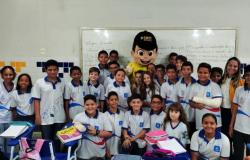The guide Misinformation about health: let’s face this problem, aimed at health professionals, was launched by a consortium of researchers from the Fluminense Federal University (UFF), the Oswaldo Cruz Foundation (Fiocruz) and three National Institutes of Science and Technology – Communication Public Science and Technology (INCT-CPCT), Comparative Studies in Conflict Management (INCT-InEAC) and Informational Disputes and Sovereignty (INCT-DSI). The publication aims to prepare workers in the Unified Health System (SUS) to dialogue with users on controversial topics that have the potential to impact the well-being of society.
The manual warns of content harmful to the health of the population that circulates in WhatsApp groups and on social networks, such as Instagram, Facebook, Tik Tok and YouTube. False medicines, campaigns against vaccines, miraculous treatments without scientific proof and magical recipes for weight loss are some of the harmful content that is disseminated on social media. The guide features a curation of media education courses, indicates spaces for checking health news information and suggests a list of reliable sources on the topic.
According to the publication, misinformation about health has the potential to directly impact physical, mental and collective well-being. It can influence a person’s opinion and affect their choices in the balanced search for health. As misleading information spreads, it affects society by encouraging a lack of trust in science and health policy. Misinformation can also cause confusion and panic among the population, making responses to health crises difficult.
The guide points out that misinformation about vaccines against Covid-19 is an example of the impact of this false information on health. Immunizers were used to reduce the damage caused by the pandemic, but many people believed content that questioned their effectiveness and did not get vaccinated. Vaccines are resources historically used to combat infectious diseases and were essential to ending the pandemic.
Health professionals can face misinformation by clarifying doubts with language accessible to citizens, with the aim of demystifying information passed on without a scientific basis so that they can have reliable choices in the search for better health and rights. According to the publication, health professionals can collaborate in this demystification by offering correct information, based on scientific knowledge, in addition to indicating reliable sources to search for health information.
Tags: Misinformation Fiocruz UFF launch guide health professionals







